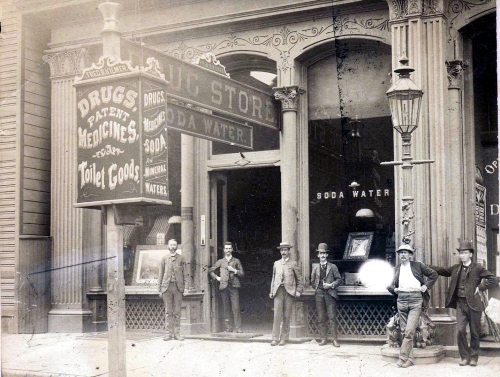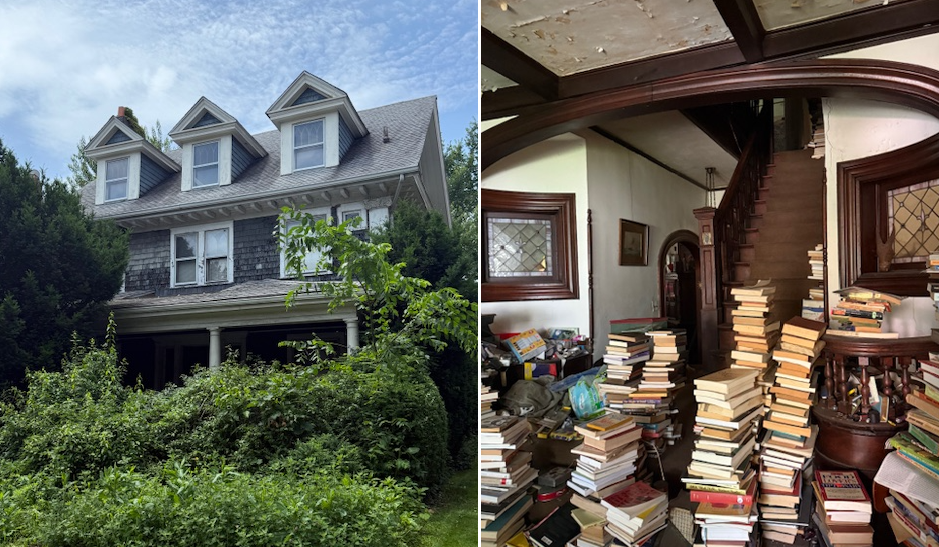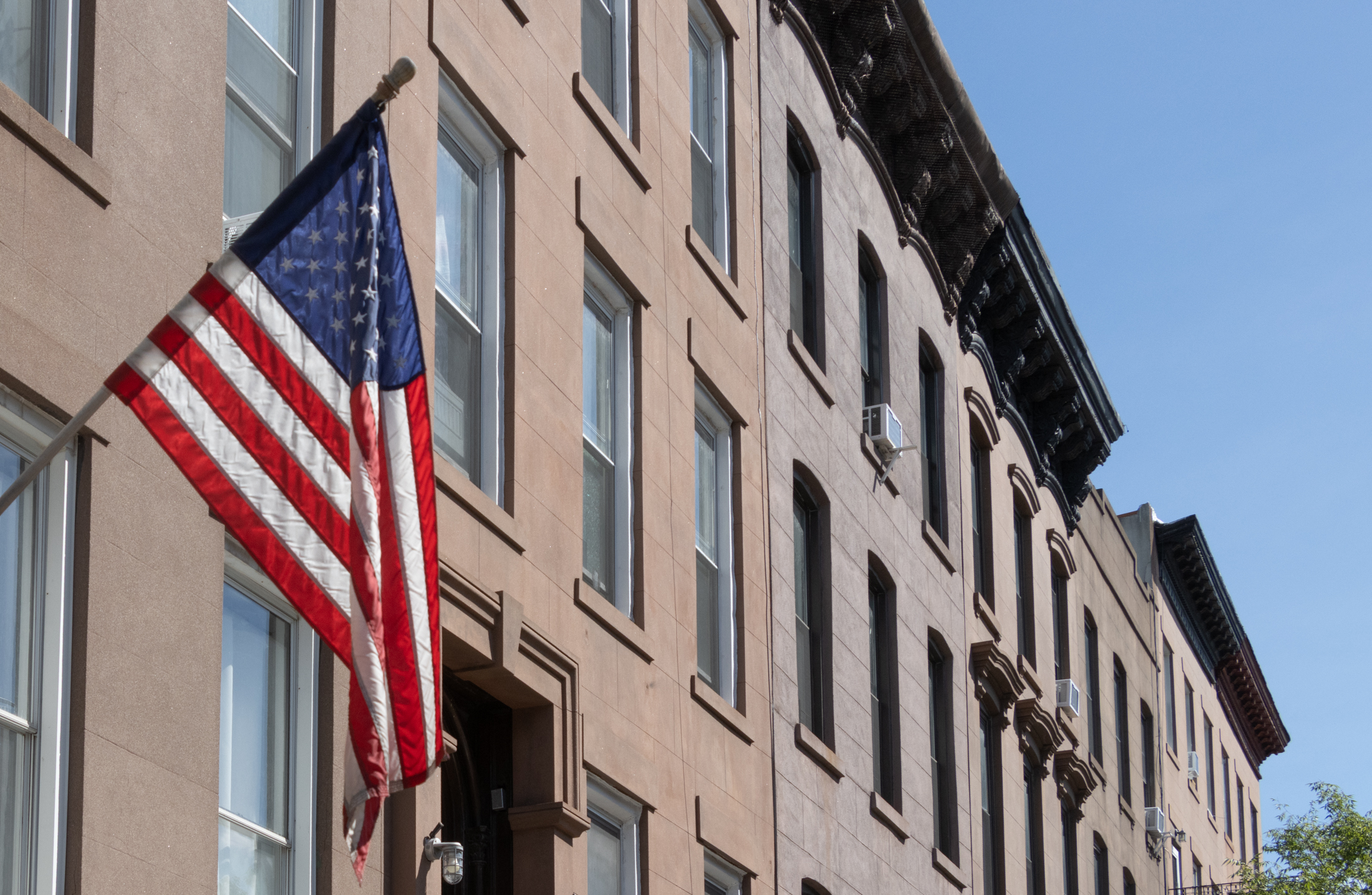Walkabout: The Drug Business, Old School, Part 2
Read Part 1 of this story. By the last third of the 19th century, great strides had been made in medicine. Powerful natural substances that had been around, literally since the dawn of civilization, were still being used to treat illnesses great and small. Pain management has long been a goal of healers throughout the…

Read Part 1 of this story.
By the last third of the 19th century, great strides had been made in medicine. Powerful natural substances that had been around, literally since the dawn of civilization, were still being used to treat illnesses great and small. Pain management has long been a goal of healers throughout the world’s history, and in the use of opiates; those medicines distilled from the opium poppy, it seemed that a miracle cure had been found.
There were only a couple of problems: the stuff was horribly addictive, and the wrong doses could kill you. With those dangers in mind, you’d think opiates would have been under lock and key, only accessible to trained professionals, yet that was not the case. Laudanum, one of the first distillations of opium, could be found in over the counter patent medicines, and in children’s cough and cold medications.
Various strengths of opium could be prescribed by legitimate doctors, and those prescriptions were often filled by people who were not trained to dispense medicines. It would take public outrage and personal tragedy to get drug standards set in this country, and the following story is one of the reasons why.
Mrs. John T. Barnard was the wife of a successful Brooklyn coal merchant, and local politician. In 1870, the family lived on the corner of Cambridge Place and Gates Avenue, in Clinton Hill. Their family doctor, Dr. Joseph P. Hutchinson, also lived nearby, and their neighborhood was already well equipped with stores and necessary shops, including two pharmacies, both located along Fulton Street.
Mrs. Barnard was suffering from gastro-intestinal pains, and had Dr. Hutchinson attend her. It was a night call, but he lived only blocks away on Clinton Avenue. He thought her condition not life threatening in any way, and ordered a prescription of tincture of opium.
Two ounces of tincture, to be taken hourly, a teaspoon at a time, mixed in ice water, until the pain subsided. Dr. Hutchinson always had his prescriptions filled by Olin’s Pharmacy, located on the corner of Vanderbilt and Fulton. But when a Barnard family member called on the druggist, they were closed. The night bell, which would have summoned someone, brought no one, that night.
So they went to the druggist on Washington and Fulton Street, an establishment owned by a Mr. Gore. It was close to midnight, and the store was also closed. But the night bell brought one of the clerks to the door, who said he was just closing up. He was a young man named Robert Weyh, and he took the prescription, filled it, and gave the solution to the family. They administered the medicine as ordered by the doctor, but after three teaspoons, Mrs. Bernard sank into a stupor and despite the best efforts of Dr. Hutchinson and his colleague, Mrs. Bernard died the next afternoon.
The Brooklyn Eagle was all over the story, and interviewed the doctors, the family, and the pharmacists involved, for this expose of medicine gone wrong. They followed the two doctors who went back to the Washington Avenue druggist, and questioned Robert Weyh, the clerk who had mixed the medicine. The pharmacy still had the original prescription, which read, “tincture opii compositus,” with the word “Squibbs” written prominently in the corner of the paper.
Unfortunately, young Weyh had mixed up a batch of “liquor opii,” a much less diluted and much stronger dose of opium. The prescription clearly read “tincture”. Also, the word “Squibbs” referenced a common brand of the tincture, which was always used for treatments of the kind prescribed. “Squibbs” had no other strength of tincture, or no other meaning except as a brand name. It should have been clear to Weyh, and he should not have made the fatal mistake.
Dr. Hutchinson and his colleague, Dr. Wilson, who also had a practice on Clinton Avenue, told the Eagle reporter that they always referred prescriptions to Olin’s Pharmacy, and never sent anyone to the Washington Avenue Pharmacy.
That establishment, they said, belonged to a Mr. and Mrs. Gore, neither of whom were pharmacists. Mr. Gore hired clerks to fill that role, but the turnover was so frequent, that both doctors feared that their prescriptions could fall into the hands of someone who was not familiar with the patients, the medicines, or was unskilled, careless, or incompetent. Their fears had come true, in this case.
The Eagle reporter headed over to the Washington Avenue Pharmacy and found a large, well-stocked store on the northeast corner of Washington and Fulton. There were several children at the soda fountain, a man was buying cigars, and two other people were buying candy. A single clerk was manning the store.
He told the reporter that only he and Weyth worked in the store. When asked if he had pharmaceutical training, this clerk said that he was a pharmaceutical school graduate, and had been on the job there for five months. He would have never made such a mistake, he said, and thought that announcing his own virtues at that time was an advantageous thing for him to do.
Robert Weyh himself then walked in, and gave the reporter a long interview. In doing so, he revealed the underside of 1870s work practices. He revealed that he was eighteen years old, and had worked in the trade for several years, beginning in Philadelphia. He had not attended any kind of pharmaceutical college, but came from a good family and had a good education, followed by on the job training, and references. He boarded with his employer, the Gore’s, at their home on Carlton Avenue near DeKalb, although he seemed to only have his clothing there, as he was always at work.
He worked at the pharmacy eighteen hours a day, starting at six in the morning, until midnight. He slept on the floor, behind the counter; in order to be available if anyone came in with an emergency prescription, as had happened with the Barnard’s.
He was responsible for everything during the day, stocking the shelves, waiting on customers, balancing the ledger sheets and the cash register. The day of the error, he had been especially busy, restocking merchandise from the basement, getting in a delivery of cigars, and trying to balance a cash register tally that was two dollars short no matter how many times he tried to balance it. Two dollars was no laughing matter in those days.
When the Barnard’s had rung the bell at midnight, he remembered that he saw the prescription was for the tincture of opium, but he had reached for the bottle of liquor of opium instead. He remembered a niggling doubt in the back of his mind telling him that he was making a mistake, but he was so tired that he convinced himself that he was overthinking it, and like a hundred times before, was doing what was right.
Even after the prescription was gone, he still thought about it, but had convinced himself that it was all part of his exhaustion and the end of an endless work day. He was devastated when he found out that Mrs. Bernard had died.
No charges were filed against young Robert Weyh, or against his employers, the Gore’s. Mrs. Barnard’s death was a tragic accident. But public outcry was loud. A law had been placed before the State Legislature some time earlier that would have prevented such an accident from happening, mandating that every druggist or drug clerk be licensed, and pass a board of examination by chaired by physicians.
Robert Weyh was 18 years old, and had been hired to stock shelves, sell cigars, soda water and ice cream, and mix and administer powerful medicines, all in an 18 hour day. He told investigators that he learned by watching, and matching names on bottles to names on prescriptions, and had received no real medical or pharmaceutical training at all. He knew there were different strengths of medicines, but really didn’t understand how that made a difference in how they were used. He should never have been left in charge late at night, the sole link between a sick patient and the medicine he or she needed.
One Eagle editorial ended thusly, “Mrs. Barnard’s death is the logical sequence of such a condition that…as much kills a clerk with work all day, in order to make probable his killing someone else at night, through the actual torture to brain and body which eighteen hours of labor impose.” In the next decades, great strides were taken in pharmaceutical training, and in the laws regarding who could legally mix and dispense medicines, although opiates like laudanum and other “tinctures” remained a medical mainstay until the early 20th century.
(Photo: 19th century pharmacy, Tumblr)





What's Your Take? Leave a Comment